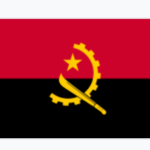Algeria is a large and diverse country in North Africa, with a rich and turbulent history. It is the tenth largest country in the world by area, and the largest in Africa. It has a population of about 44 million people, most of whom live along the Mediterranean coast. Algeria is also home to the largest portion of the Sahara desert, which covers more than four-fifths of its territory.
Algeria has a long and complex history, dating back to ancient times. It was inhabited by various indigenous peoples, such as the Numidians, the Berbers, and the Phoenicians, who established trading posts and colonies along the coast. Algeria was later conquered by various empires, such as the Romans, the Vandals, the Byzantines, and the Arabs, who introduced Islam and Arabic to the region. Algeria also witnessed the rise and fall of several local dynasties, such as the Zirids, the Hammadids, the Almohads, and the Zayyanids, who ruled over different parts of the country.
In the 16th century, Algeria became part of the Ottoman Empire, which ruled through a system of local governors called deys. The Ottomans faced resistance from various groups, such as the Kabyles, the Sanusiyya, and the marabouts, who sought to preserve their autonomy and religious traditions. Algeria also became a center of piracy and slave trade in the Mediterranean, which provoked conflicts with European powers.
In 1830, France invaded Algeria and began a long and brutal colonization that lasted until 1962. The French exploited Algeria’s natural resources and imposed their culture and language on the Algerian people. The Algerians resisted French domination through various rebellions and movements, such as the Mokrani Revolt, the Etoile Nord-Africaine, and the Algerian National Movement. The most significant resistance was the Algerian War of Independence (1954-1962), which was led by the National Liberation Front (FLN) and resulted in Algeria’s independence from France.
Since independence, Algeria has faced many political, economic, and social challenges. It has experienced several coups d’état, constitutional changes, and periods of authoritarian rule. It has also suffered from a bloody civil war in the 1990s between the government and Islamist groups, which claimed more than 100,000 lives. Algeria has also struggled with poverty, unemployment, corruption, human rights violations, and environmental issues.
Despite these difficulties, Algeria has also made some achievements and progress. It has developed its oil and gas industry, which accounts for most of its exports and revenues. It has invested in infrastructure, education, health care, and social welfare. It has also diversified its economy by promoting agriculture, tourism, industry, and renewable energy. Algeria has also played an active role in regional and international affairs, supporting causes such as Arab nationalism, anti-imperialism, African unity, and Islamic solidarity.
Algeria is a country with a rich culture and heritage that reflects its diverse influences and identities. It has a vibrant artistic scene that includes literature, music, cinema, theater, and visual arts. It has a diverse cuisine that combines Mediterranean, Arab, Berber, Turkish, and French elements. It has a varied architecture that ranges from ancient ruins to modern buildings. It has a diverse religious landscape that includes Sunni Islam (the official religion), Sufism (a mystical branch of Islam), Christianity (mostly among foreigners), Judaism (mostly among emigrants), and Ibadi Islam (a minority sect).
Algeria is a country that offers many opportunities and challenges for its people and visitors alike. It is a country that is proud of its past and hopeful for its future.







